22 things you MUST fix before selling your home
The biggest property deal-breakers – and how to fix them

Urban Front
House hunters are a fickle bunch. According to research, it takes the average person fewer than 10 minutes to decide whether they want to buy a place, which doesn't give you much time to win them over. Luckily, we've tracked down the best expert tips and insider secrets, so you don't have to.
Read on to discover the top things that deter buyers and how to rectify them, so you can get your home off the market in record time...
Roof issues

Brian Clifford / Shutterstock
Roof issues not only pose a risk of water ingress and leaks but can also lead to major structural problems. If a faulty roof is revealed on a property survey, then buyers will immediately be scared off by the prospect of costly repairs.
A damaged roof could also suggest property neglect or a lack of maintenance, which may raise further concerns about the overall quality of your home. Although costly, it could be wise to repair any roofing issues before listing your house.
A lack of natural light
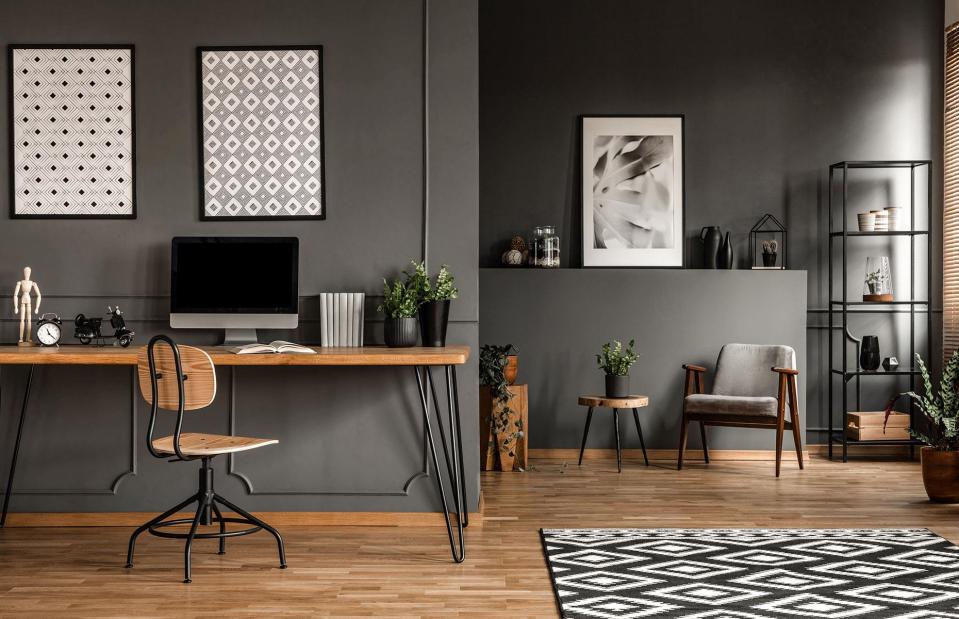
Ground Picture / Shutterstock
As a seller, you'll want to showcase your home in its best light – quite literally! Natural light is a huge selling point. After all, no one likes dark and dingy rooms. So, before any viewings, open your blinds or curtains and remove any clutter that might be blocking light from filtering inside.
It's also a good idea to check that all your interior lights are working. If a viewer spots that one isn't, they may assume there's an electrical fault, even if it's just a burnt-out bulb.
Poor maintenance
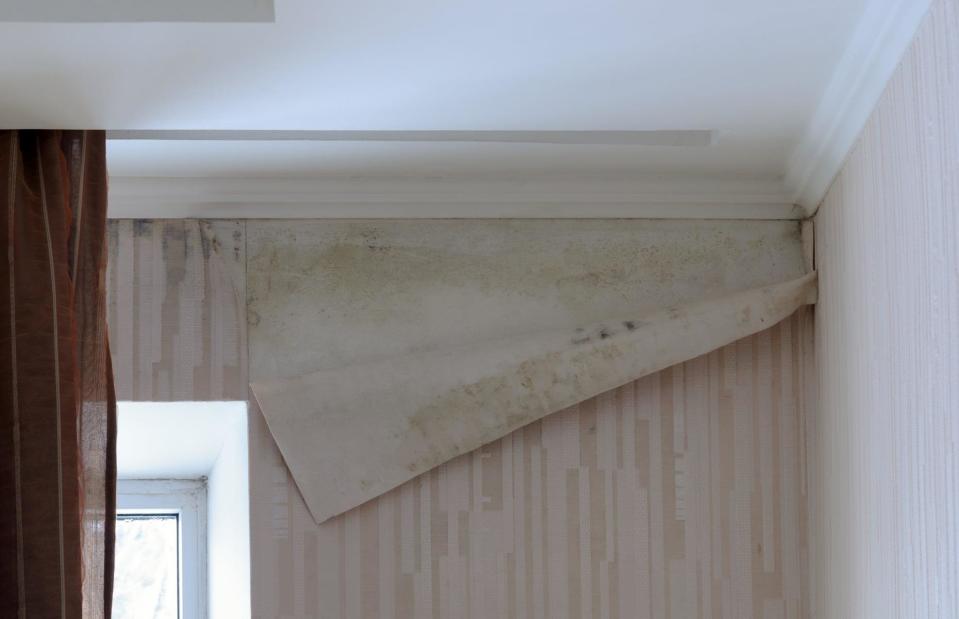
tetiana_u / Shutterstock
When someone steps inside your home, you don't want the first thing they see to be poorly maintained rooms. If a prospective buyer spots scuffs on the paintwork, peeling wallpaper or mouldy bathroom tiles, they will immediately start questioning what standard the rest of the house is in.
Take care of these small but important details, because they all add up to the bigger picture of your house as a whole.
Out-of-date major appliances

Djordje Novakov / Shutterstock
Major home appliances can be expensive to replace, so if a potential buyer spots an old-fashioned boiler or a refrigerator that hasn't been replaced for decades, they might immediately be put off. The boiler is perhaps the bigger one for house hunters since they need reassurance that, come winter, they won’t be let down by an old or inefficient heating system.
Plus, according to GoCompare’s Property Investment Calculator, 37% of people buying a new home want a new boiler or central heating system. Installing one could also add 4% to the value of your home. So, if you're thinking of selling, you might want to upgrade key appliances before you put your home on the market.
Noisy neighbours
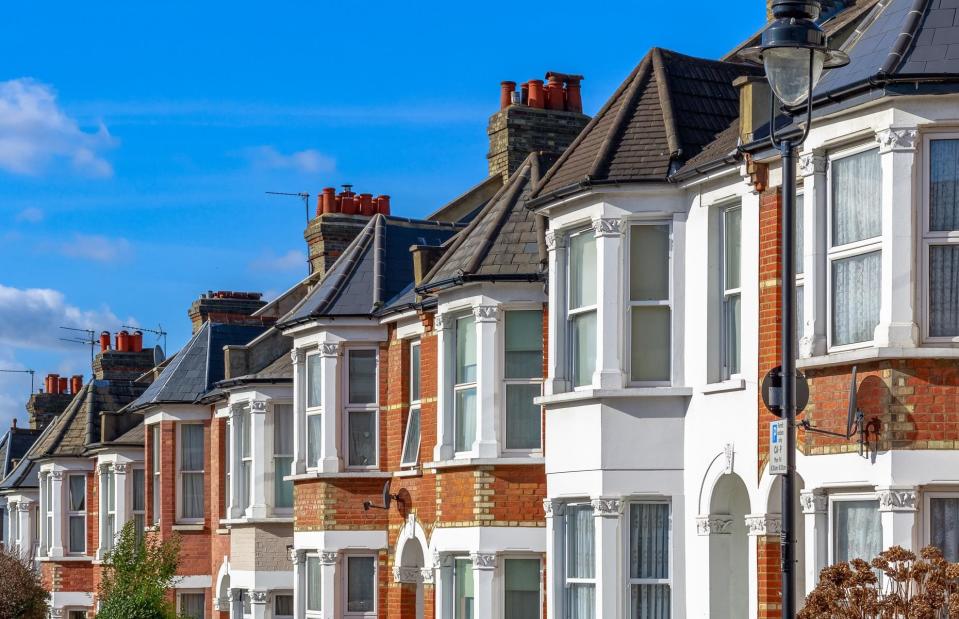
I Wei Huang / Shutterstock
There's not much you can do about having noisy neighbours, but they could certainly put buyers off snapping up your home. Even worse, undesirable neighbours can reportedly reduce the value of a property by as much as 10%.
You must declare any neighbour disputes when selling your home because if you don’t, you risk being taken to court later down the line if past problems arise.
Do your bit to help matters by investing in soundproofing measures such as choosing carpets instead of wood flooring in flats and apartments.
Bad smells
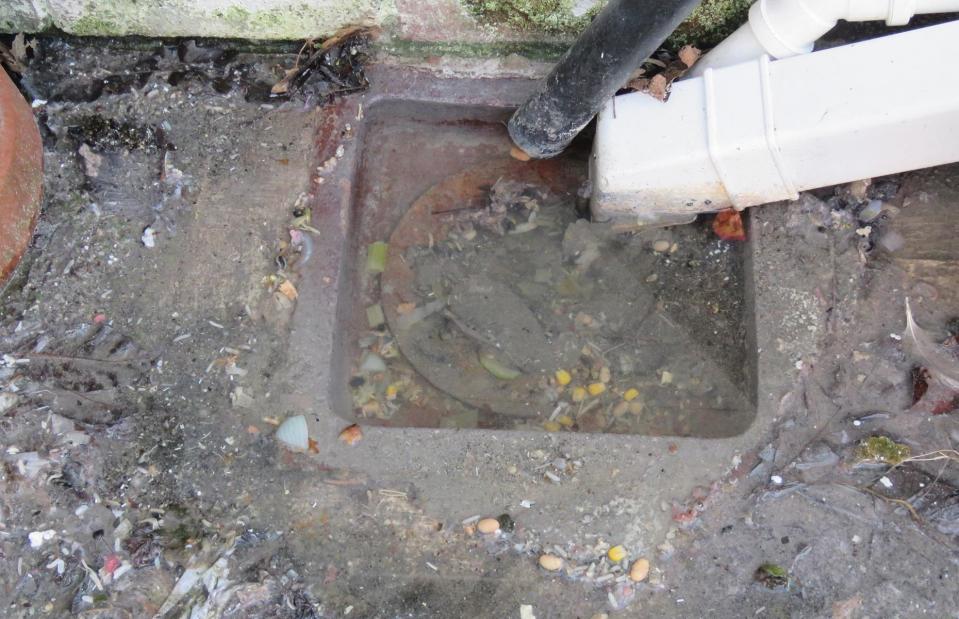
Liz Boynton / Shutterstock
Many of us are 'nose-blind' to the scent of our own homes, but unpleasant odours could easily put people off. The smell of a property is one of the first things a buyer will notice and they could see a nasty odour as a sign that you've neglected the place.
Avoid cooking anything too fragrant before viewings, take out the trash and ensure your pet and its bedding are freshly washed.
Got a blocked drain? Get it fixed well in advance of the showing. The scent of an air freshener, flowers or a fresh loaf of bread could go a long way, too.
Inflexible viewings
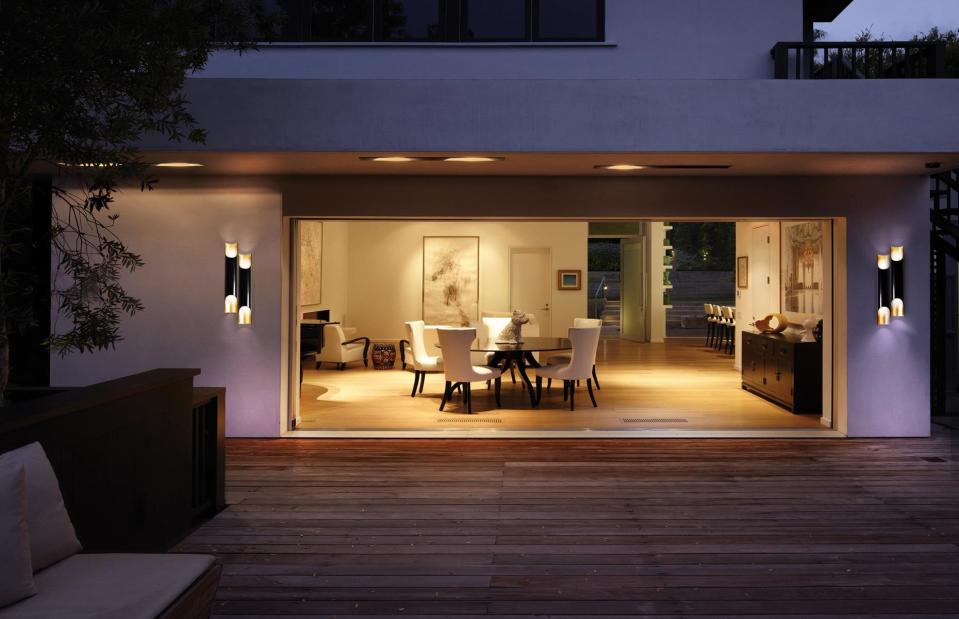
DelightFULL
Being inflexible with house viewings will immediately reduce the pool of people who can visit. So, it’s important to be open to showing your home at different times of the day, to accommodate people’s schedules.
Plus, many buyers like to view a house both during the day and in the evening, to get a sense of what the area is like at different times, so allow anyone wanting to do so, where possible. It could be a sign that they're keen!
Featured outdoor lighting available from DelightFULL.
No off-street parking
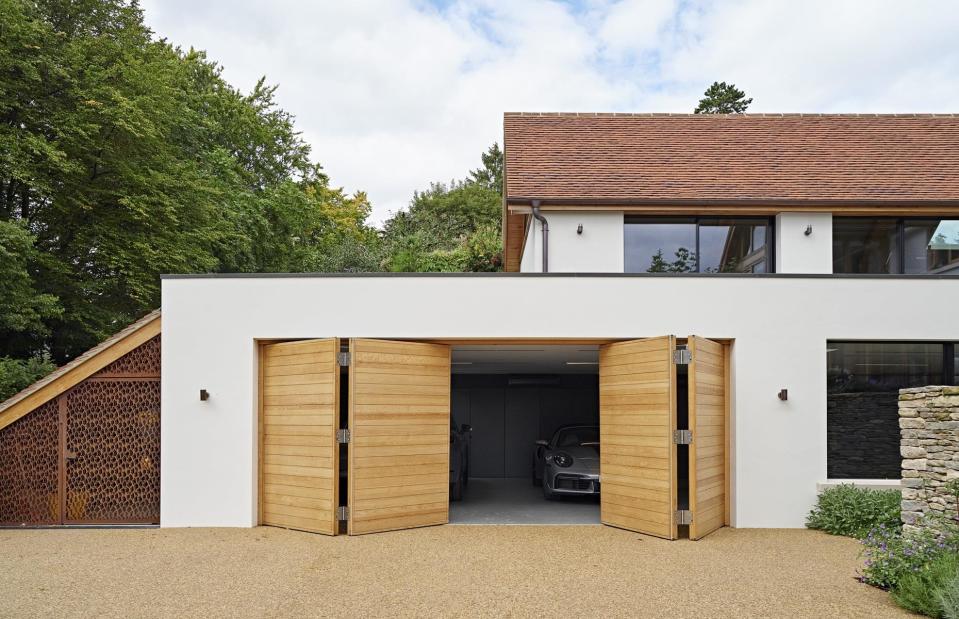
Urban Front
Driveways are very important to house hunters. In fact, many people wouldn't buy a house that didn't have one. A lack of off-street parking, or any kind of garage, is also a big turn-off for buyers. Reports have found that homes with off-street parking can fetch up to 13% more than similar properties without, too.
Therefore, if you can, add a parking space to your home. However, you need to bear in mind that doing so could be costly and you may need planning permission if a new entrance point is required.
Featured garage available from Urban Front.
Bold or brash-coloured rooms

KARNAVALL22 / Shutterstock
Our homes reflect our personal tastes, so it makes sense that some house hunters might not be as into your interior style as you are. When it comes to appealing to a wide buying audience, it's best to stick to more neutral tones. After all, you’re trying to show the potential of the place by allowing buyers to envision what they could do with the space.
If your rooms are too visually stimulating, prospective buyers might not be able to do so. A can of white paint might make all the difference in a sale and could even boost your home's value.
Too much clutter

trekandshoot / Shutterstock
Bold interior design will stop buyers from being able to visualise their belongings in a home, but so will clutter. That's because mess makes your home seem smaller and can be difficult for buyers to see past. If your rooms are looking a little overcrowded, consider having a clear-out or hiding everything away where it won't be seen. It will make packing up and moving easier anyway!
But don't go too far, you'll need the rooms to look 'lived in' and show buyers what life could be like in their new home. After all, empty homes don't give off a warm or welcoming feeling. Think 'less is more'.
Over-personalised décor
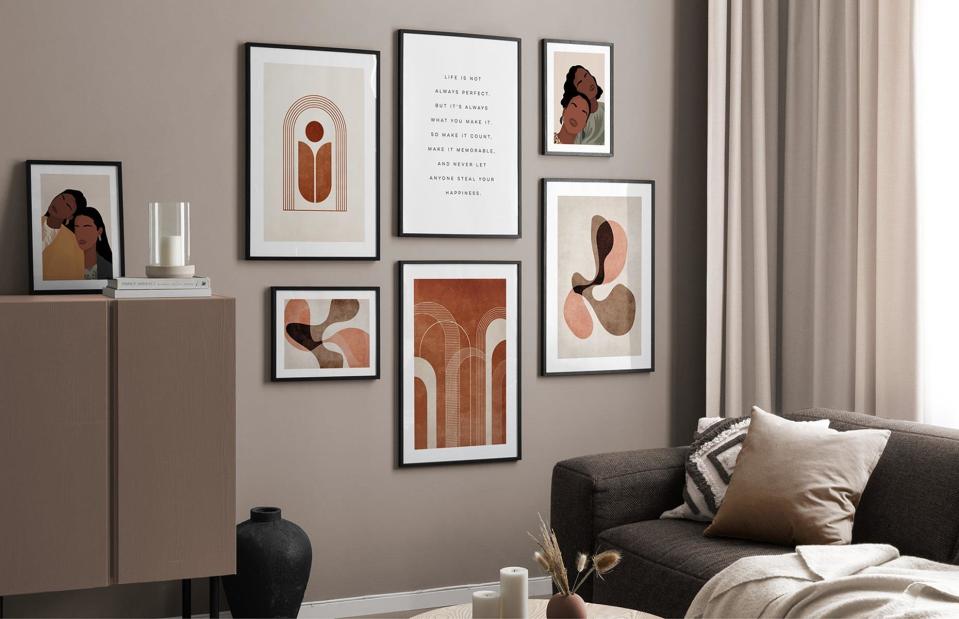
Desenio
In the same way that clutter and bold interior design can stop people from seeing how they could make your house their own, so can overly personalised rooms. If your property is full to bursting with family photos and trinkets from your travels, viewers might be discouraged from buying it.
It's best to keep photos, ornaments and personal items on display to a minimum. If you have a gallery wall filled with personal pics, consider switching them for fun art that complements your décor.
Featured artwork available from Desenio.
A dirty home
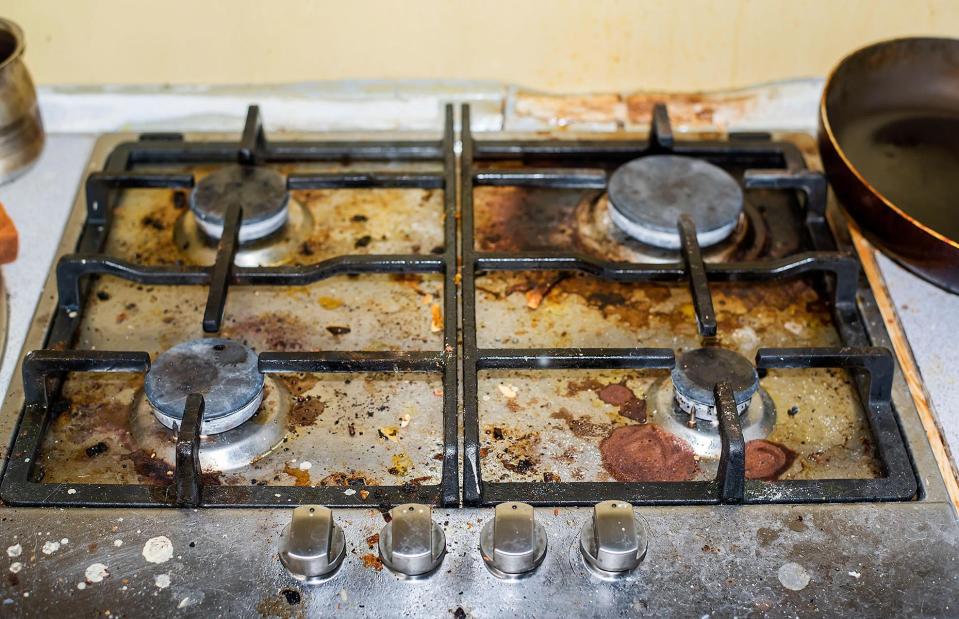
Julia Pavaliuk / Alamy Stock Photo
It goes without saying that a dirty house is an uninviting house and grime, dust and dirt certainly won't help prospective buyers envisage themselves living in your place.
Before you book any viewings, be sure to give your interior the once over. Vacuum the floors, dust all surfaces, clean the dishes, tidy away any toys and ensure your bathroom is sparkling clean. If it seems overwhelming, you can even call in the professionals to help you.
Extreme temperatures
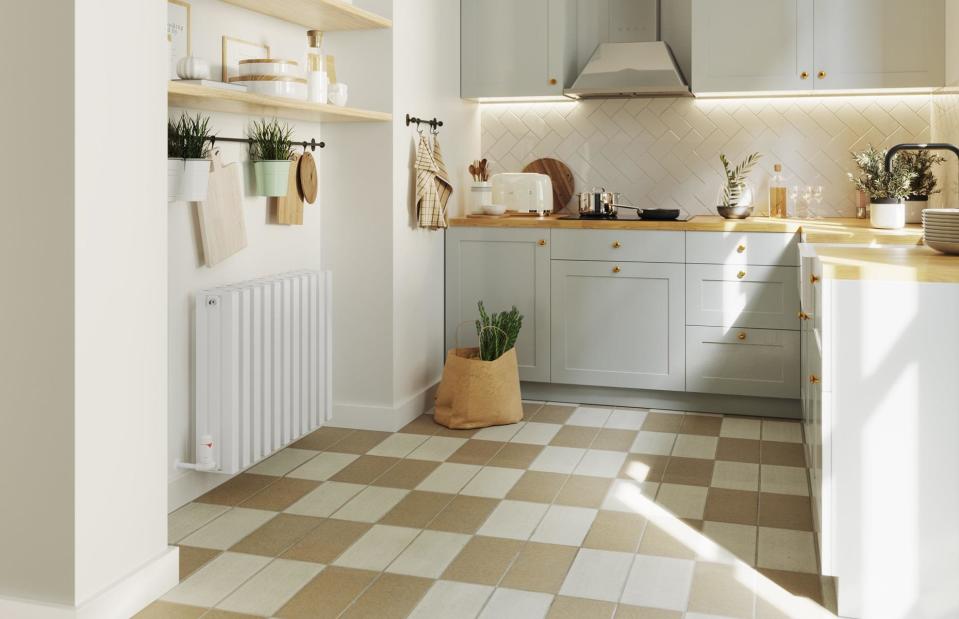
UKRadiators.com
No one likes being too hot or too cold, so you need to ensure your property is set to an ambient, comfortable temperature before any viewings take place.
Too cold and they might begin to question whether your heating system is broken. Too hot and they will already be worried about the humid summers to come. That might be all it takes for your would-be buyer to walk away without signing on the dotted line.
Featured radiator available from UKRadiators.com.
A lack of storage
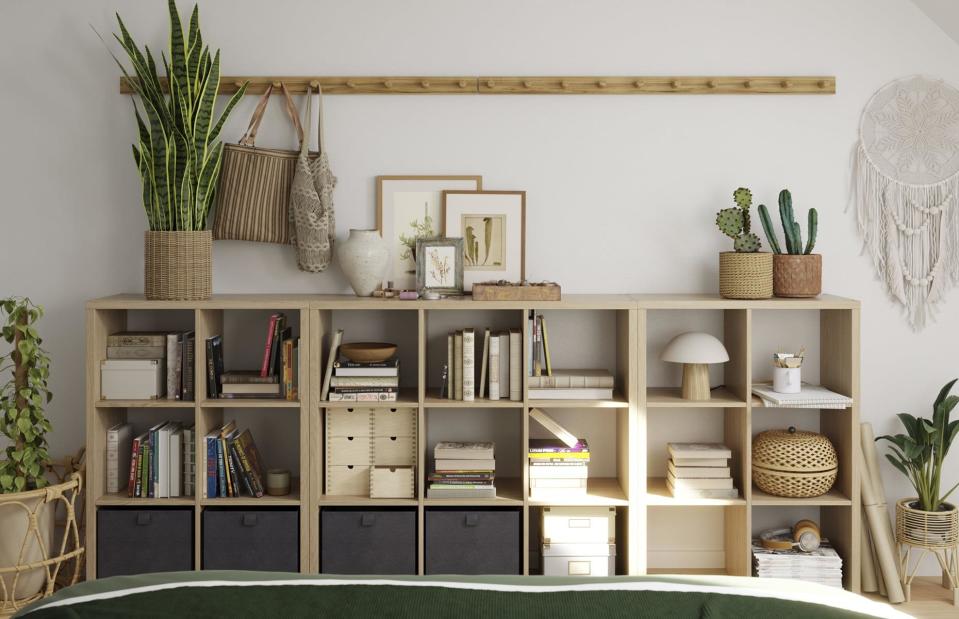
GoodHome brought to you by B&Q
A lack of storage isn't just annoying, it can deter people from buying your home. If they walk around and notice that there's nowhere for them to hang their coats, store their shoes or place their bags, they might be out of the door in a flash.
So, as well as decluttering your home, it's a good idea to organise rooms to show that there's plenty of space for someone to store their belongings.
Featured shelving unit available from GoodHome brought to you by B&Q
Damaged fixtures and fittings
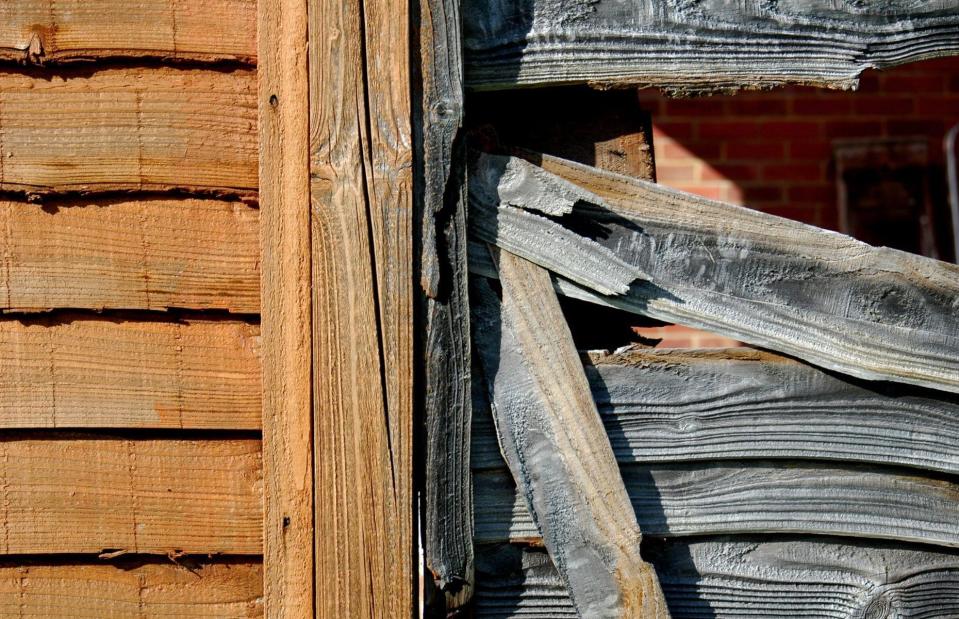
Steve Mann / Shutterstock
Got a kitchen cupboard hanging off its hinges, a curtain rail that's coming away from the wall, or a broken fence that you've been meaning to repair? Well, before you list your property for sale you might want to get around to those annoying home jobs.
Damaged fixtures and fittings can quickly deter buyers, who will immediately think about how much all the repairs might cost. So, make sure anything that's currently looking a little worse for wear is taken care of.
An interfering owner
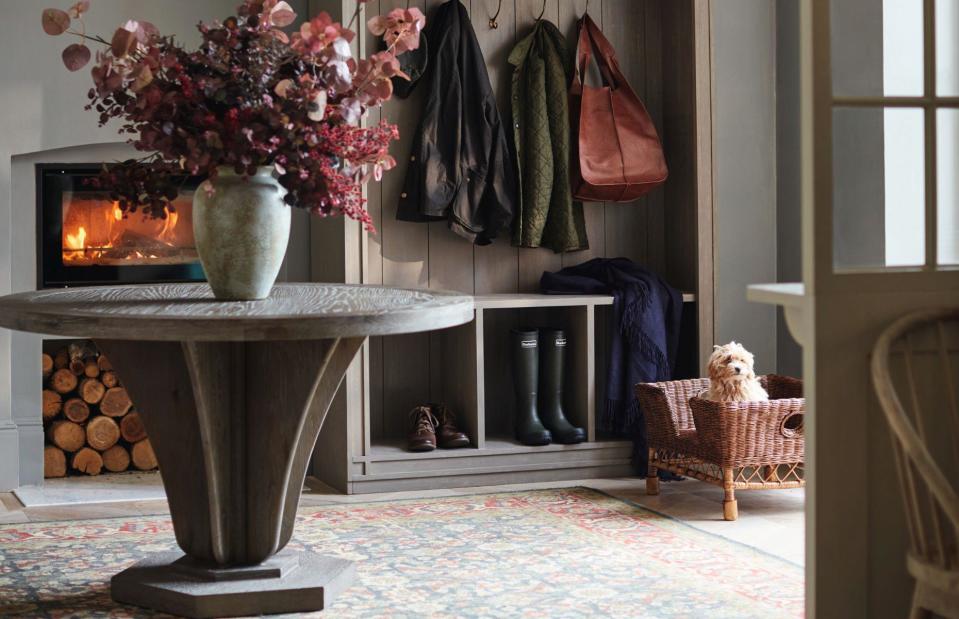
OKA
Some sellers like to be there when prospective buyers visit their home, but this can be unappealing to people. In fact, it's considered a bit of a faux pas for sellers to be present during showings, as it can make buyers feel uncomfortable.
It’s best to use an agent who can carry out viewings for you and point out all your home's best features. They can also provide honest feedback from viewers.
If you want to be there to show people around, then it's vital that you're polite and open with them, answering any questions they might have. If you've got a lively pet, perhaps ask a friend to look after them for a few hours while the viewing takes place.
Featured furnishings available from OKA.
Signs of damp and mould
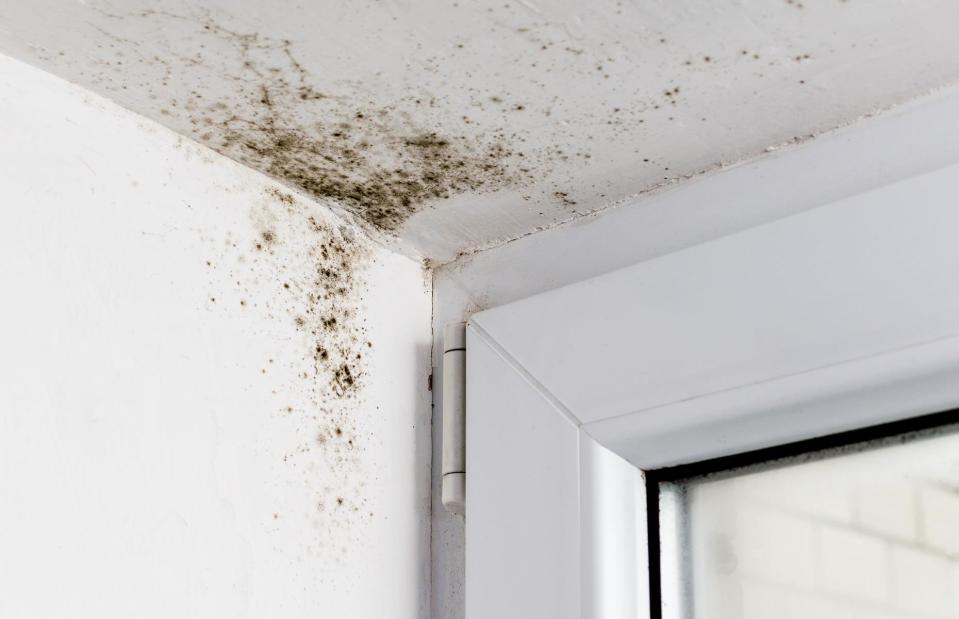
Afanasiev Andrii / Shutterstock
One of the top turn-offs for house hunters is mould and damp patches and it's no surprise! Damp indicates that there could be a major issue with insulation, ventilation or the overall structural integrity of your home. So, prospective buyers will be able to see future bills before they've even paid for their new home.
If you have any damp or mould issues, you should prioritise addressing them properly. Don’t just try and cover it up, as that could lead to issues with the buyer later down the line.
Poor security

Ring / Amazon
Before buying a property, house hunters will want to know it's safe. So, if your place appears to have poor security, you could quickly deter buyers. At the same time, you don't want to create the impression that your home is a fortress.
Too much security could easily lead people to believe your neighbourhood is unsafe, or that you've previously had issues with break-ins. The best thing to do is fix any broken locks or windows and ensure the garden is secure, especially if your house is located on a busy road.
Featured Ring video doorbell available from Amazon.
An untidy garden
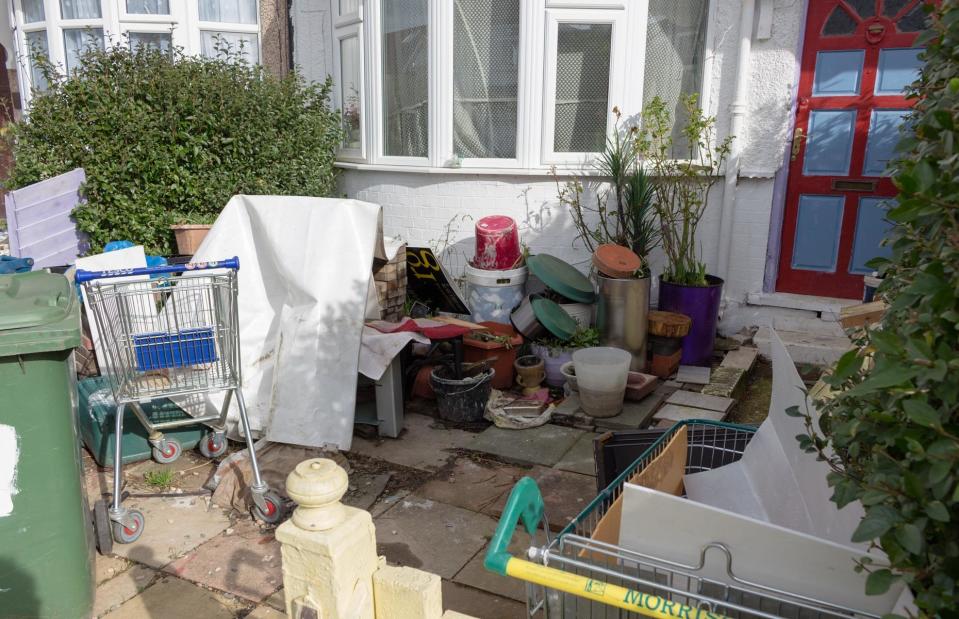
Dom J / Shutterstock
If your garden is poorly maintained, buyers could make the assumption you've been neglecting the whole house. Whereas a garden that’s well cared for and used as an extension of the living space is a major draw for many. It’s worth putting some work into your garden before listing, so tidy up, add some attractive seasonal plants and create a sitting or dining area, too.
It isn't just your garden that could deter people, either. Unfortunately, the state of your neighbour's garden could have an impact on people viewing your home. Offering to help them with a spot of gardening could make all the difference.
A lack of good photos
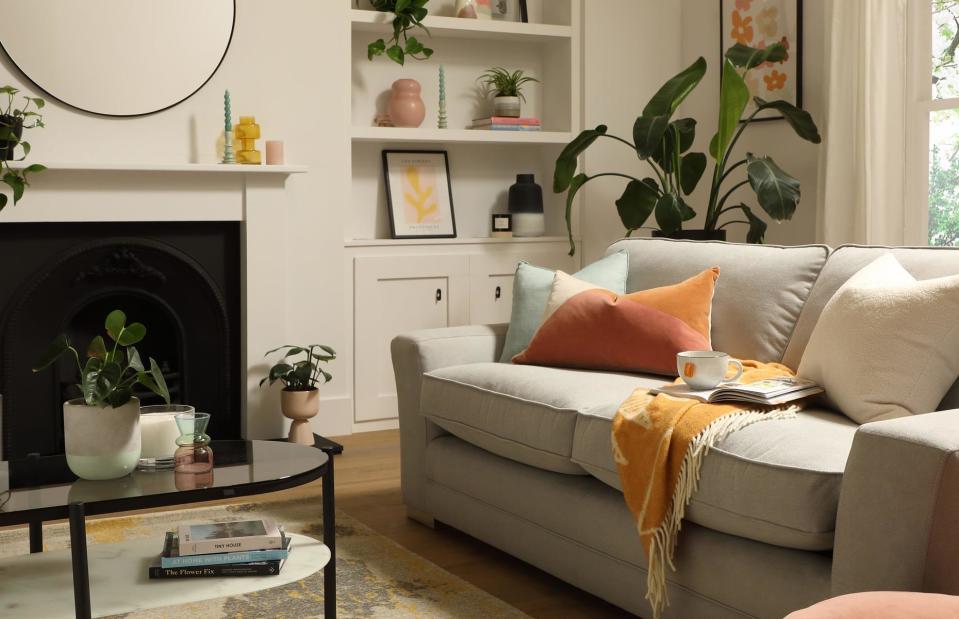
Furniture And Choice
Real estate listings have the power to influence whether someone will take the time to visit your home in person, so if your listing lacks good-quality photographs, you'll be falling at the first hurdle.
No matter what you do, don't scrimp on professional, high-quality photos of your home. Most diligent real estate firms will provide this as standard, or for a small fee. But that fee will be well worthwhile. After all, you only have a moment to catch people’s eye as they scroll through online listings.
Featured furnishings available from Furniture And Choice.
Poor or out-of-date wiring
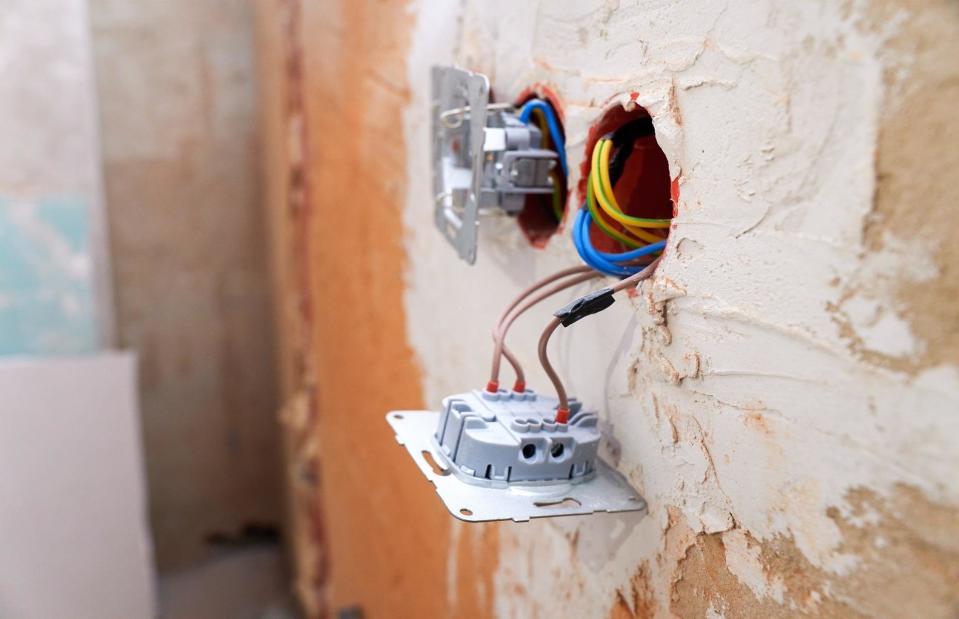
dr.D / Shutterstock
Poor or older electrical wiring or systems will impact your home sale. Buyers could be put off, or see it as an opportunity to negotiate a lower price. Wiring systems that have been in place for a long time are also one of the leading causes of house fires, which could drive up the cost of your home insurance, so it's best to get them checked over and updated before you put your home on the market.
Your home should be wired to receive higher modern-day electrical currents. Older homes used far less and were built to a lower capacity, which will struggle to support the number of electrical fixtures, appliances and the general electrical load that today’s homeowners require. And speaking of electrics, try to have multiple sockets in every room, in convenient locations.
Poor kerb appeal
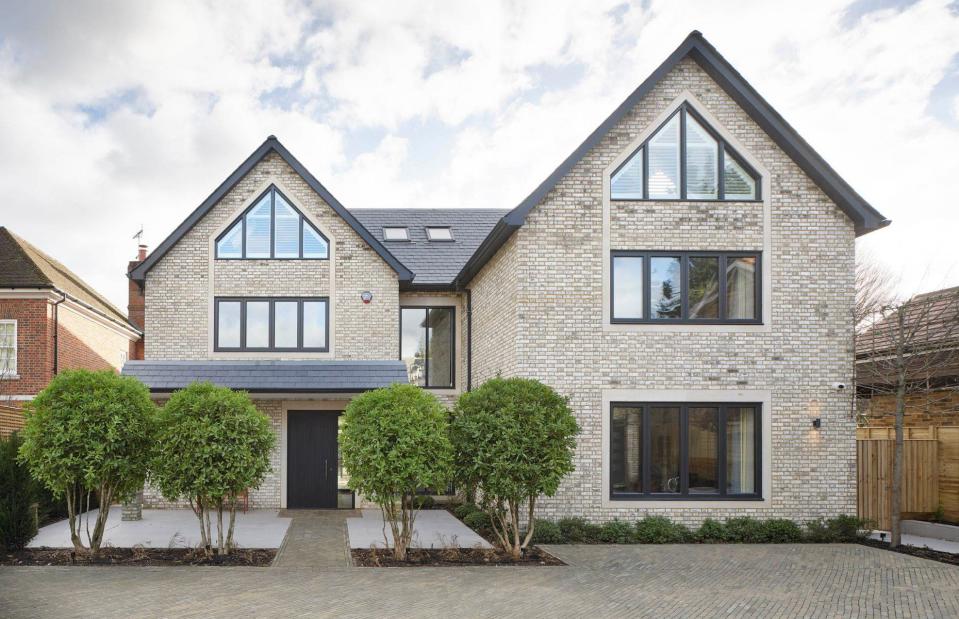
Urban Front
Since it takes most people less than 10 minutes to be turned off a property, a poor exterior finish will instantly deter buyers before they've even stepped inside. So, it's essential that you get your kerb appeal just right.
First impressions are critical. Painting the front door, mowing the lawn, tidying the path, trimming bushes and clearing away rubbish or bins are good ways to improve kerb appeal.
Featured front door available from Urban Front.
Now take a look at these other genius home hacks and advice


